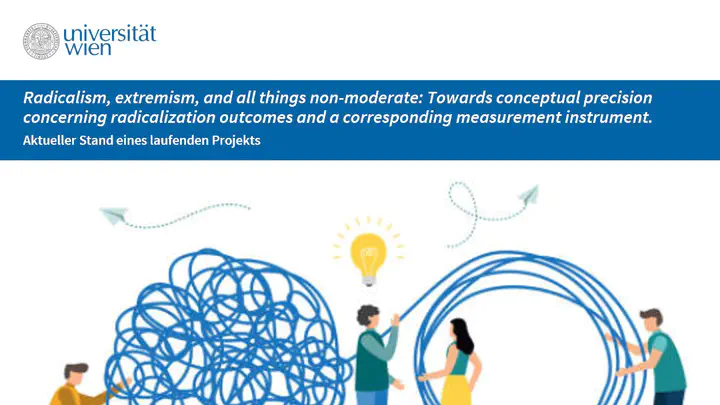Radicalism, extremism, and all things non-moderate: Towards conceptual precision concerning radicalization outcomes and a corresponding measurement instrument

Abstract
The field of radicalization studies is interdisciplinary. Combining different angles such as psychology, criminology, sociology and political science, the process of radicalization is often discussed and investigated without defining where exactly it leads. Recently increasing interest in the differentiation between radicalization of attitudes and radicalization of behaviour highlights the fact that not all (and probably not even most) radicalization ends in political violence. Extending and building upon previous literature, we propose three possible outcomes of radicalization: benevolent radicalism, malevolent radicalism, and extremism. People in these states should differ in terms of their attitude towards violence, level of political (in-)tolerance, preference between democratic and non-democratic political systems, beliefs about spreading their ideology, orientation toward ingroup-benefit versus general altruism, and preference for hierarchies. Another issue in radicalization research is that studies are often specific to a particular phenomenon (mainly right-wing extremism and Islamic religious extremism); correspondingly, existing instruments are specific to a particular ideology. In the present study, a measurement instrument was designed with two aims in mind. Firstly, to differentiate between benevolent radicals, malevolent radicals, extremists, and political moderates, using a theory-driven clustering approach. Secondly, to separate the question ‘are you an extremist?’ from the question of ‘of which ideology are you an extremist?’. Therefore, the resulting instrument should be suitable to detect different radical or extremist social movements. The newly developed instrument was validated on a sample of Austrian young adults (aged 17 – 20) via online-survey conducted in May 2021.